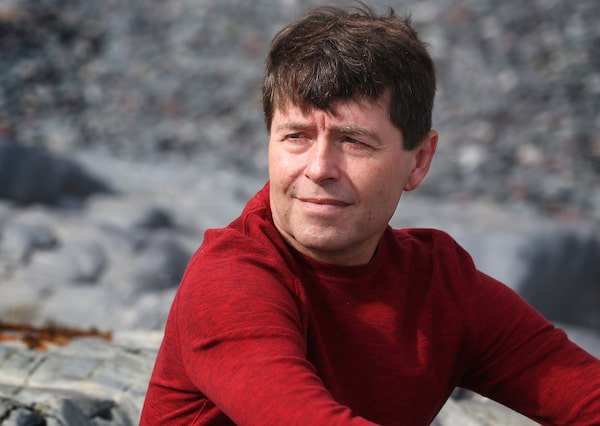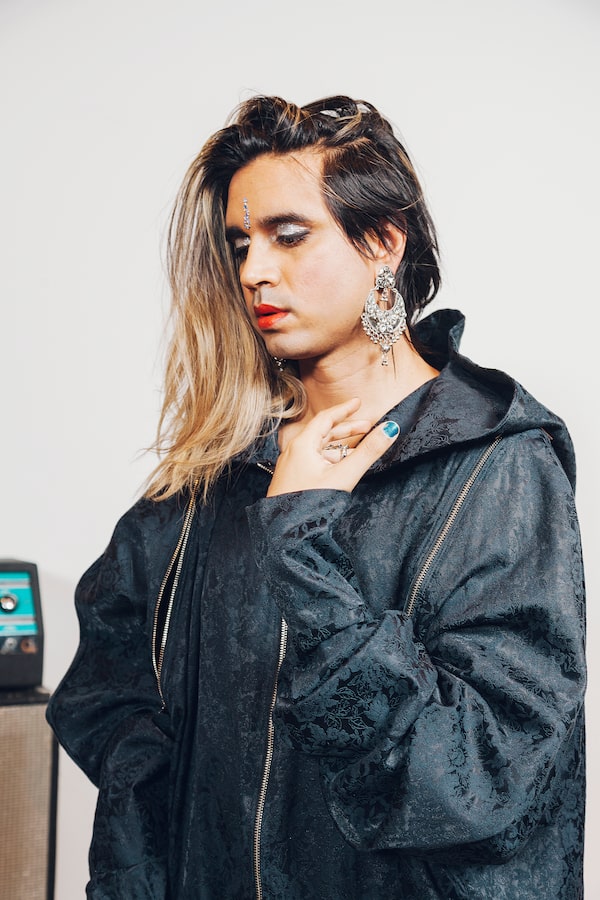Canada was Guest of Honour this year at the world’s largest trade fair for books, the Frankfurt Book Fair, where the country’s publishing industry, talent and culture were meant to be showcased. Although the organizers invited a couple of dozen Canadians to the event, only eight authors ended up attending. The lack of authors’ presence was mostly owing to fear of getting COVID-19 and being unable to leave Germany for the quarantine period. Globe and Mail Arts editor Judith Pereira spoke with three authors who made the trip about their experiences at the fair.
Dispatches from Frankfurt Buchmesse, the world’s largest book fair
Canada is finally the cover story at Frankfurt Book Fair, seven years later
Kim Thúy, Quebec, Em
Vietnamese-Canadian author Kim Thuy says at every tour she's done abroad people know more and want to know more about Canadians.Roger Lemoyne/The Globe and Mail
How do you think Canadians are perceived in Germany?
Germans are very curious about us. I was here with the Governor-General and we were in Berlin on a state visit and we got to meet with the new federal President and you could feel the relationship between Canada and Germany. Germans are very intellectual, they read a lot, they think a lot but also a lot of them, including the President, have personal relationships with many Canadians. We usually think of Paris or London as our allies in Europe but not always Berlin.
Are Germans interested in our books?
Every tour that I’ve ever done here – Munich, Berlin – they know more and want to know more about us. Canadians never think anyone knows who we are. And so all my readings were a full house. It’s not only about the book or the publisher. It’s a combination of that but Canada has a name and has a place here and every time you talk to a German reader, they want to know more. We absolutely exist in the German imagination.
A lot of our programming here at the festival is looking at Indigenous voices. Are Germans surprised at that?
We think no one knows about that but if you go to France, they always ask questions about it. The question has been asked and also about preserving cultures; these are universal questions and not only a Canadian question. You have the same issues in Australia, New Zealand and the States. And with the environment, we need to hear the voices of Indigenous people more and more because it’s about land and we need them to be involved.
Michael Crummey, Newfoundland, The Innocents

Author Michael Crummey says there’s something universal in his books that people hold on to.Paul Daly/The Canadian Press
What prompted you to come to the fair? Tell me about your experience so far.
This is my first time to Germany and to the fair. I have two books in translation – The Innocents and Sweetland – and I was very keen to come to the fair and support the German publishers who have taken a chance on me. I was surprised about how moved I was to see those Canadian banners at the Festhalle and to realize what a big deal it is here in Germany. The book fair means a lot and it’s much bigger than I thought. And for the Germans, it’s really important that we were willing to come here and to do the fair in person.
What have you been hearing about the Canadians?
The response has been really generous. We weren’t sure right until two weeks ago about coming. I am also very impressed by Governor-General Mary May Simon and I think her words were really well received. I’ve never really heard someone of her level talk about story-telling in quite the same way. It was really beautiful.
Newfoundland always seems like a character in your books. Are you surprised about how it translates into German and how it would play here.
I am always surprised that my book sells in Canada because Newfoundland can be exotic even to us and we seem really far to the rest of Canada. But there’s something universal in the books that people hold on to. All my books have been translated into Polish and I always find that strange. It’s a bizarre thing to think of those stories in Poland and Germany. But I talked to my publisher and The Innocents is selling well here; the paperback version just came out and the push of the fair has really helped it. It’s about building awareness for authors that may not have traditionally been given the play.
Vivek Shraya, Alberta, I’m Afraid of Men

Vivek Shraya says the term Singular: Plurality, which is Canada's slogan at the fair, is a smart one because it embodies the tension that as a country we are many things.Photograph by Rodrigo Daguerre
Why did you decide to come?
Being an artist is central to my identity but being a performer is a huge component of that and for the last two years not being able to perform – there’s depression and then there’s a whole other layer of depression that I hadn’t known existed. And it was a combo of knowing I wouldn’t be going alone and coming to represent my country.
What has your experience been at the fair?
It’s been fantastic. I’ve had the opportunity to do so many different things and they’ve been so open to my ideas. I’ve showcased my poetry, my music and my novel so it’s an amazing opportunity to perform at an international level.
You talked about representing Canada: what is that like?
If you put me on a panel and ask me to talk about my work, I can do that. But how does it feel to be Canadian – these are complicated questions. There’s a part of me that feels proud but there’s another part of me that means being Canadian is being aware that you’re on land that isn’t yours. It’s a weird thing to say I’m proud to be Canadian because it means I’m proud to be on someone else’s land. Sometimes I worry that they’ll feel they brought the wrong person out here. But there are a lot of things about Canada that I love and appreciate and am grateful for. This is why I think the term Singular: Plurality [Canada’s slogan at the fair] is a smart one because it embodies that tension that as a country we are many things.
You haven’t yet been translated into German. Is that an issue with not being able to actually translate some of your words?
Well the earlier moderator said something about how race is a hard thing to translate here in Germany and so I wonder – considering how much racism is a part of my work – whether that could be a thing. But also I take risky choices. I’m Afraid of Men, that’s risky. It opens a world to me but it also limits a world to me. The hope is that it finds an audience but I also realize the challenges with that. Which is why also coming to the fair is a chance to get your words out.
Expand your mind and build your reading list with the Books newsletter. Sign up today.